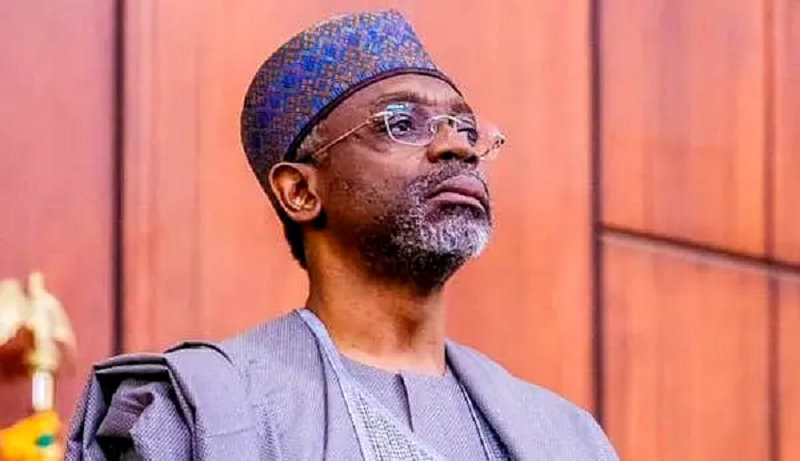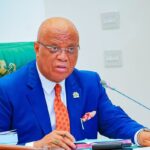By Hamisu Kabir Matazu & Balarabe Alkassim
Nigerian missions abroad are in a spot over alleged financial scandals being probed by the House of Representatives.
This is just as the Independent Corrupt Practices and Other Related Offences Commission (ICPC) recovered N370 million in two missions; the Nigeria High Commission in London, United Kingdom, and that in Bern, Switzerland.
For many years, the missions have been characterised by poor funding, crumbling infrastructures and poor working conditions that dent Nigeria’s image abroad.
FCTA disburses N2.8bn to area councils
Nigeria losing N14trn to crude oil theft yearly as NNPC heightens surveillance
The situation has elicited public condemnation, especially from the National Assembly and the media, who feel that the Nigerian missions, the faces of the country abroad, must be well funded to rescue them quickly from their present sorry state.
To achieve this, the 2022 Appropriations Act authorises embassies to spend the capital components of their budget without approval from the ministry.
However, the recent investigation by the House of Representatives Public Accounts Committee into an alleged N13 billion extra-budgetary spending has put the integrity of the head of the foreign missions at stake.
The investigation, which indicted some of them, was based on the report submitted to the committee by the office of the Auditor General of the Federation on the financial and other activities of the foreign missions and the Federal Ministry of Foreign Affairs between 2010 and 2019.
Also, a separate memo addressed to the Minister of Foreign Affairs by the Independent Corrupt Practices and Other Related Offences Commission (ICPC), which Daily Trust obtained, revealed a high level of fraud that led to the recovery of N370 million from two out of the 101 Nigerian foreign diplomatic missions.
So far, the anti-graft agency has recovered N70 million illegally earned by the unentitled heads of mission (ambassadors) and Foreign Service Officers (FSOS) in the Nigerian High Commission in, London, the United Kingdom (UK) and served a notice of refund of N300 million on the Nigerian Embassy in Bern, Switzerland between 2020-2022.
The letter dated June 28, 2022, titled “Unwholesome Practices in Nigerian Foreign Missions” and signed by the Commission’s chairman, Mr Bolaji Owasanoye, also said the recovery did not preclude the ICPC from prosecuting persons implicated.
Part of the infractions found by the ICPC includes abuse of the provisions of the Public Procurement Act 2007 through collusive bid rigging between the FSOS and contractors, inflation of contract prices and receiving kickbacks from contractors.
The commission also accused them of enlisting fictitious names on the nominal rolls of the missions as domestic aides and of illegally receiving the salaries without proof of the residency of the aides in the host countries.
In February 2020, the United Kingdom’s Foreign and Commonwealth Affairs Department disclosed that the Nigerian High Commission owed over £7 million arising from 58,102 unpaid charges in 2018 alone.
All this comes amidst cries of paucity of funds to properly run the country’s embassies and missions in many countries.
Nigerians have heard tales of how embassy staff, due to the absence of proper accommodation, operate from rented properties for decades, even though Nigeria has buildings to accommodate foreign missions and embassies.
The auditor general’s report now before the House of Representatives has revealed a damning indictment on some of Nigeria’s foreign missions that engaged in such infractions as well as refusing to remit their Internally Generated Revenue (IGR) into government coffers as required and provided for in the nation’s laws.
The report revealed that landed properties belonging to the Nigerian Embassy in Brasilia have been left in a dilapidated state for decades.
According to the report, the embassy has been spending $50,247.89 (N7,500,000) annually on rent for two of its staff for three years, an amount that could have been used to renovate the properties and save a lot for the government.
The embassy also allegedly exchanged six old vehicles for two new ones purchased at the cost of $95,211.00 (N11,754,444.44). The prices at which the old ones were exchanged were not disclosed or records made available.
An additional $17,642.08 (N2,375,224.28) was spent on shipment, insurance and clearing of the new vehicles and all the other expenses were not budgeted for.
The ambassador to Poland had also allegedly claimed over N9.777 million in 2010 as payment for non-existing domestic staff.
In another instance, the report stated that the Nigerian Ambassador to France allegedly spent over N1.75 million in 2011 to entertain guests, but there was no record of the guests reportedly entertained.
The report alleged that several Nigerian missions denied audit staff from the office of the Auditor General access to financial records, based on a circular from the Ministry of Foreign Affairs.
It further added: “At the Embassy of Nigeria, Washington DC USA, properties owned by the Federal Government of Nigeria were sold and the proceeds of the sales used to open a “property account.”
“A scrutiny of the bank statements of the main account revealed that several transfers of funds amounting to $17,477,677.54 (N2,619,949,997.79) were made at different times between 28th August 2009 and 26th April 2012 from the “Property Account” to the main account.
The report, however, revealed that, despite these huge transfers, the main account had only a meagre balance of $769.49 (N115,348.58) as of 16th May 2012.
According to the report, a tax refund of $1,550,000, which was inadvertently deducted from the sale of the embassy’s property situated at 6705 Connecticut Avenue, Cherg Cheses, Maryland, had been withheld by the solicitors on the sale since 2007.
It added: “In a letter dated 12th December 2007, the solicitors informed the embassy of the receipt of a cheque in the sum of $1,550,000 being the refund and promised “disbursing the check (sic) to the Embassy of Nigeria promptly upon its clearance by 22nd December 2007.”
The report said, however, that nothing was done, eight months after the due date of the clearance of the cheque, and the embassy later sent a reminder to the solicitors requesting immediate disbursement of $1,550,000 plus interest that accrued to the embassy.
The report also indicted officials of the Nigerian Embassy in Paris who allegedly printed official receipt booklets for the collection of government revenue privately, contrary to financial regulations.
Cases of arbitrary and discretionary engagement, deployment and placement of local staff by the Nigerian High Commission in London were also widespread according to the report.
It revealed that the staff strength of the high commission was over-bloated, with local staff numbering 106 as at November 2016.
The Nigerian Embassy in The Hague, Netherlands, was also indicted for allegedly spending €66,730 on the renovation of six government properties, while another €226,393.345 was paid to two contractors for the construction and repair of the roof of the Chancery.
It stated: “The sum of €28,670 (N6,232,608.70) was paid to a consultant as part payment for consultancy services for the provision of priced bills of quantities to the embassy. However, the voucher did not have documents to support the payment.
“The Priced Bill of Quantities, which was awarded at a total consultancy fee of €45,000 (N9,183,673.47), could not be produced for verification.
“Similarly, another payment of the sum of €14,000 (N2,978,723.40) made to another consultant as payment for various consultancy services to the embassy had no supporting documents.
“The mission claimed that these were bills that had been outstanding for many years, yet the mission did not find it expedient to attach the supporting documents.”
The report also states that, in 2010, the Government of Borno State deposited the sum of €315,000 (N55,125,000) into the account of the embassy for the purchase of hospital equipment, adding that the amount had been at the embassy for quite some time without any word from the Government of Borno State.
“Therefore, the embassy decided to lodge the amount in a fixed deposit account, suggesting that the Government of Borno State with a view to immediately retrieving the sum of €315,000.00 (N55,125,000.00),” it said.
The report added that Ondo State Government opened a students account with Standard Chartered Bank, 13, Malcha Margclankyapuri, New Delhi on 28th July 2010 with an initial deposit of Rs1,816,470 (N5,657,022.73).
“Since the account was opened, there had not been any transaction to suggest that it was meant for students except for the fact that the money was transferred from the original account number 52405053734 to a fixed deposit account number 52430220290 with the same bank on 31st March 2011 at an interest rate of 9.75% compounded quarterly and with a maturity date of 7th March 2012.
“Further investigation revealed that there were no students from Ondo State in India. Therefore, the purpose of this account remains inexplicable. This account should be closed while the sum of N5,657,022.73 with all accrued interest should be remitted to the Government of Ondo State.”
As long as this alleged sleaze and wasteful spending, as contained in the report of the Auditor General’s office, continues unchecked, Nigerian missions will remain in a perpetual state of unexplainable financial challenges which will affect their operations and ability to deliver.
The report is a cause for concern for all Nigerians and calls for those in authority to act fast and salvage the reputation of Nigeria, because the embassies and missions reflect what Nigeria is and how it should be. A stitch in time always saves nine.

 Join Daily Trust WhatsApp Community For Quick Access To News and Happenings Around You.
Join Daily Trust WhatsApp Community For Quick Access To News and Happenings Around You.


